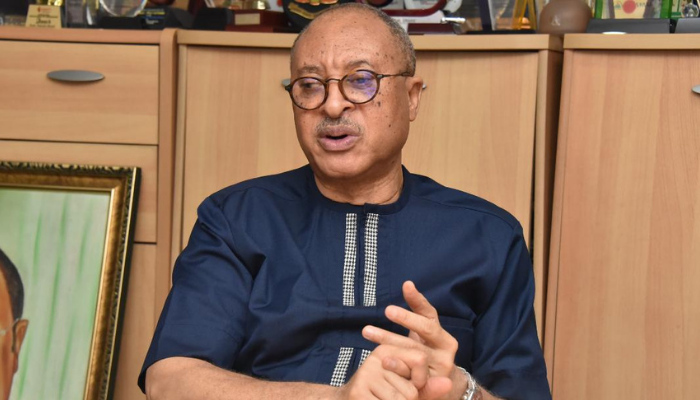As reactions continue to trail the announcement of fuel subsidy removal by President Bola Tinubu, a Professor of Political Economy, Pat Utomi, has advised the Federal Government to grant licences to private investors to set up modular refineries.
Prof. Utomi, who stated this in an exclusive interview with Prime Business Africa, said it would help to tackle the challenge of domestic refining of petroleum products that has made the country depend on importation over the years which brought about the subsidy in the first place.
President Tinubu’s “subsidy is gone!” statement during his inaugural address on May 29, heralding the official removal of subsidy on petrol, has sparked a chain of reactions including the sudden hike of pump price of Premium Motor Spirit (PMS) and the consequential increase in prices of other goods and services across the country.
READ ALSO: Fuel Subsidy Removal: 26 Actions Tinubu Govt Must Take – CPPE
Nigeria has over the years depended on the importation of petroleum products to meet local consumption as the refineries are not working.
While giving reasons for the subsidy removal, President Tinubu said there is no provision for it in the 2023 budget beyond June. He said the subsidy regime has only favoured the rich more than the poor and “can no longer justify its ever-increasing costs in the wake of drying resources.”
The president added that funds for subsidies will be channeled to other things like public infrastructure, education, health care and job creation.
Utomi noted that the issue of subsidy is a much-nuanced issue that needs careful consideration because of the impact on consumers.
He said he had been against the petrol subsidy scheme because it wasn’t serving the interest of ordinary Nigerians but enriching a few at the top.
“I have always been against the subsidy. I believe, like some of the anti-subsidy people say that subsidy is a scam. It is a pure scam,” Utomi stated.
He said the figures reeled out over the years about the quantity of imported petrol were not realistic.
Trying to justify his assertion, the economic expert pointed out that when compared with the level of consumption in the US the figure from Nigeria is higher. He attributed it to smuggling of the product to neighbouring countries by those who make fortunes out of the illicit business.
READ ALSO: Fuel Subsidy: FG Should Deregulate, Sell Refineries For Efficiency- Envoy To Burundi
“Let me give you an example of what has happened to petrol consumption, if you look at the numbers, how many tonnes of petroleum are sold in Nigeria versus elsewhere? Let’s take, for instance, the United States where people are always on wheels, and they really consume petrol. But if you take the official per capita consumption of what Nigeria consumes, and what is consumed in the United States, you will be flabbergasted because technically, Nigerians consume more than 10 times as much as Americans, even though they are not a motorized society, many Nigerians don’t own cars, don’t travel long distances, so, how come we consume so much petrol. It is simple, part of that scam. Most of that petrol is going across the border.”
He said that with the subsidy having been removed, there are fears among Nigerians, given past antecedents, that the money being saved from it, might not be properly utilized on productive ventures as being promised.
“There is the tendency to say, we will use it to do other things, but in the culture of state capture that we have, the culture of consumption against production that we have, that money would just shift to the next set of scam artists who are either issuing contracts for building roads or other things which the government would come and spend the money on.”
While making a case for the establishment of modular oil refineries, Utomi said the investors can have a partnership with marginal oil field operators for the supply of crude oil.
“One of the reasonable things to do is give refinery licences to Nigerians to establish modular refineries across West Africa to start with, and the marginal producers link them up, set up trading schemes for Nigerians who will both work in marginal fields and in these refineries,” Utomi stated.
He added that such an arrangement would create jobs for hundreds of thousands of Nigerians.
He also said that the government should consider privatizing the existing refineries because it can’t afford to continue spending huge amounts of money on turnaround maintenance every year when nothing comes out of them.
According to him, the refineries would be better managed by private-sector players. He argued that over the years, Nigeria has exhibited a culture that does not support the growth and sustenance of public enterprises.
“To get the refineries to work, privatizing is clearly the way to go,” Utomi added.
Victor Ezeja is a passionate journalist with seven years of experience writing on economy, politics and energy. He holds a Master's degree in Mass Communication.


















Follow Us